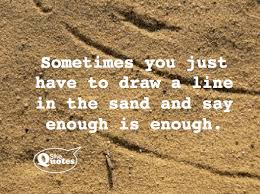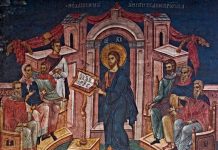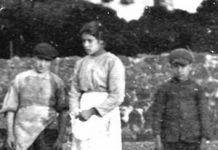As we wrote recently, British Columbia currently has a total prohibition on public religious services; what is of most concern to Catholics is the lack of public Masses and other sacraments. Toronto recently won a limited victory, of sorts (see the Oliver Twist and Mr. Bumble analogy in a recent post), which in this case is like the Church getting a second helping of watery porridge – going from a limited capacity of ten people per church, to ten percent capacity. It’s something, and may keep things going for a while.
Religious leaders and their lawyers in BC also fought back through the legal process, going to the Supreme Court of the province; but the recent decision by Chief Justice Hinkson went against them. As one communique from ARPA Canada put it:
The churches at the centre of this case argued that these restrictions unreasonably infringed the freedom of religion, freedom of expression, freedom of assembly and freedom of association – all four of the Charter’s fundamental freedoms. Attorney General lawyers conceded that three of these freedoms were in fact infringed, and Chief Justice Hinkson agreed with the petitioners with respect to all four. However, he decided that these infringements were reasonable given the circumstances.
The rationale for this ‘reasonable’ conclusion was that, according to the Public Health Office – the aforementioned secularly-haloed Dr. Bonnie Henry – religious services are ‘higher risk’ than other social outlets, such as restaurants, gyms, stores and the like.
In one unwitting sense she is sort of right. For the Church does have an autonomy over the State, and the latter has no right to enter into or interfere with the sanctuary of God. That was what the whole Thomas a Becket and Thomas More affairs were about; the Church has had to defend her rightful autonomy through the ages, and this time is no different.
What will Archbishop Miller now do, or advise his fellow Catholics to do? If religion means anything, it requires that we offer to God that which we owe Him, and foremost amongst those duties is the requirement for ‘full, public worship by the Mystical Body of Jesus Christ in His head and members’, the very definition of Liturgy.
The relation between Church and State is a complex one – we hope to post something soon as way of a primer on the topic – but for now, check out Dr. Douglas Farrow’s fine take. Each is autonomous in its own domain, the spiritual and the temporal, but there are many areas of overlap. Hence, the ideal cooperation between Church and State, which should be distinct, but not separate. The State has grave obligations to the ‘one, true Church of Christ’, and each society has an obligation to be ‘Catholic’ in some deep and real way. This, of course, would ideally avoid many areas of conflict.
Hence, we could hold that certain restrictions on our religious rights and duties may be decreed in extreme circumstances – ideally by the Church herself, and not imposed by the State – but they should be proportionate, limited, fair and balanced.
To simply forbid public worship indefinitely, while everything else in the province is open, is quite most definitely not ‘proportionate, limited, fair and balanced’, but rather egregious anti-religious discrimination, whose roots seem to be either indifference, insouciance, or outright disdain.
Our task, however, is not to infer motives – we will leave that to God – but simply demand justice, which implies freedom of conscience, movement and assembly, not least for those things that are most necessary.
If lifting weights, sipping wine, and enjoying meals are deemed ‘necessary’ – and I am all for people choosing their proclivities in freedom – what are to say of the very Bread of Eternal Life, the offering of the Holy Sacrifice, the confession of our sins, and the worship given to God Himself? Of course, to the secular mind, these mean nothing, but to the Catholic mind, they are everything.
If the State draws an unjust line in the sand, we as a Church must draw our own, for in the end, when push comes to shove, we must obey God rather than men. Or, at least, so someone once named Simon said. And shouldn’t we always do what Simon says?










